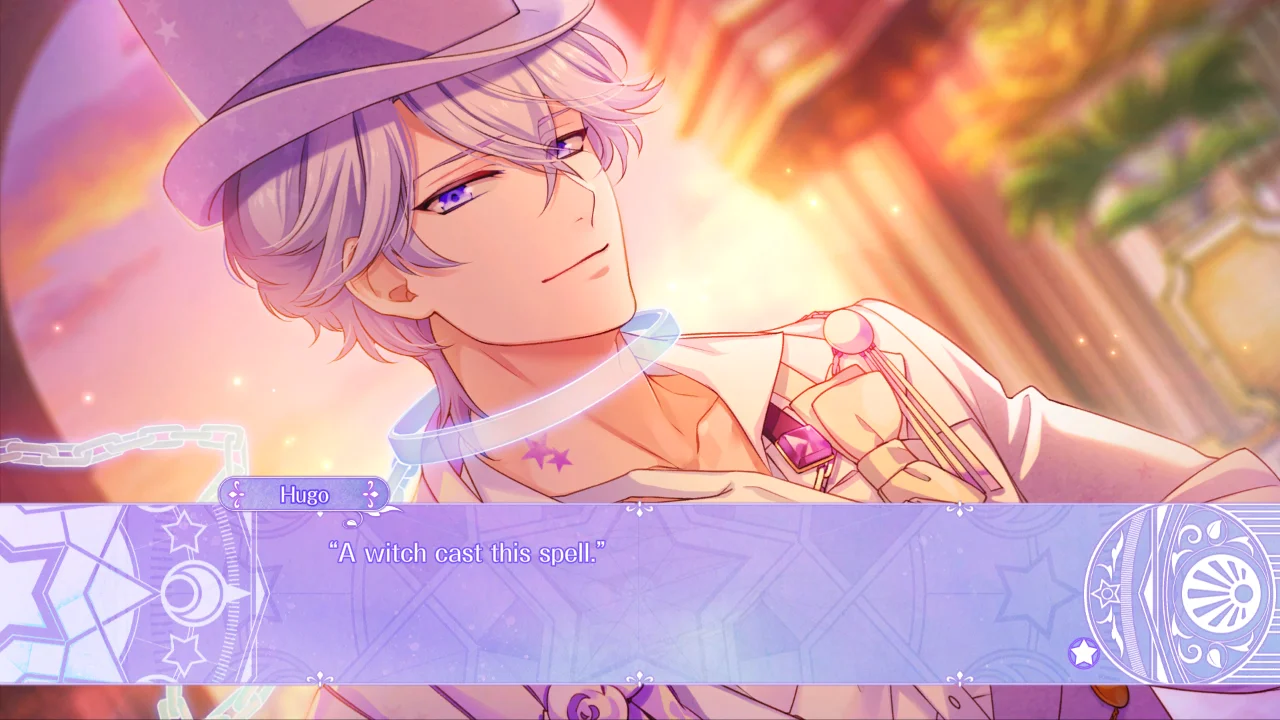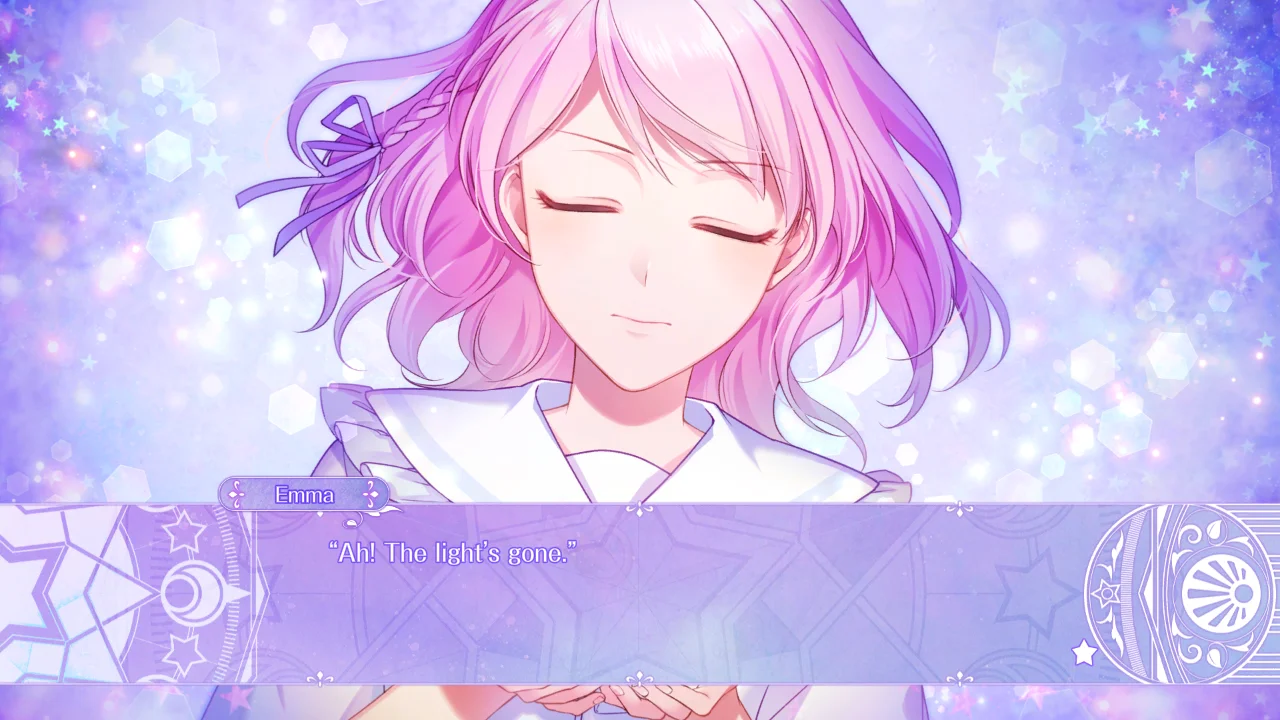Genso Manège Review | RPGFan


Love can be a magical thing, a conceit that the otome visual novel Genso Manège leans into right at the start, with its bright yet soft pastel-colored visuals hiding a darker story about overcoming hardship and trauma. Even more than its enchanting visuals, the narrative contrast of darker aspects blended with lighter, more heartwarming ones makes this VN stand out. For those wanting compelling romantasy, Genso Manège delivers.
The game’s plot takes place in a relatively ambiguous time in a version of France somewhat more fantastical than our own. In this setting, witches once lived among regular humans, but the number of witches thinned considerably due to mundane fear of the unknown and deep-seated prejudice. Genso Manège‘s protagonist is a young woman named Emma, an introvert fond of staying home and reading whenever she can. In actuality, Emma is one of the few surviving witches in the story’s current timeline, though a tragic event in her past caused her to lose a year’s worth of memories alongside her magical abilities. She lives a quiet life in a small town with her foster mother and brother, content to helpfully repay their kindness around their house.

Curiosity takes Emma to a traveling amusement park attraction, where she uncovers a shocking truth. The park itself happens to be magical, with the people running it as its captives, unable to leave its sphere of influence freely. Emma’s latent witch abilities may hold the key to freeing them from their forced servitude, but can she overcome her past trauma to reclaim them? And what, exactly, will happen to everyone if she succeeds? Amidst the park’s attractions await looming mysteries and unknown dangers, though Emma might find something more hopeful and brighter than she ever thought possible there, too.
To say much more about Genso Manège‘s narrative would risk delving into spoiler territory for individual character routes. Given how well-written and emotionally compelling they are, I’d be remiss to do so. The main cast of characters is a likable bunch, and I enjoyed learning more about them as the plot thickened. Hugo is mysterious, polite, and knows more than he lets on, while Serge is his by-the-books second-in-command with a hidden, dry sense of humor. Crier is an easily embarrassed guy who acts tough but has a not-so-hidden soft spot he’ll readily deny as he’s often at odds with Clara despite the two being close. The supportive aforementioned Clara becomes a fast friend and encourager to the more timid Emma. Arnaud is Emma’s protective foster brother, who works as an investigative journalist. Finally, Lyon and Luciole work at the park as the innocent rabbit-costumed mascot and reclusive mechanic, respectively.
I was particularly fond of Lyon and Luciole’s romance routes as Luciole’s introverted tendencies cause him to mesh well with soft-spoken Emma, and the friendship that first forms between Lyon and Emma makes their bond genuinely heartwarming. I was amazed at how much I enjoyed their romance, given that I don’t usually like “mascot” routes! Emma has a very defined personality, but she’s different from many otome heroines in that she’s timid but still manages to be determined when it counts. She tries hard to overcome her self-confidence issues, making her stand out. The story’s surprisingly dark and nuanced undertones, likable cast, and believably developed romances are its strongest selling points.


Gameplay-wise, progress in Genso Manège is that of a typical visual novel, reading through text until a choice element pops up. Depending on your choices, you can raise characters’ affection meters, with the ultimate goal of picking the “correct” choices to max out a character’s affection if you’re leaning towards optimal story route outcomes. Emma is trying to restore her magic throughout the game, so there’s also a puzzle component that breaks up narrative text dumps. This mechanic is pretty simple, relying on either joystick controls or a touch screen to collect floating stars representing magic points. Collecting enough of these stars will raise Emma’s magic meter. Maxing it out alongside one of the bachelor’s affection meters is key to earning the best endings. You can choose to skip this mini-game if you prefer, though I found it easy enough to land in the “perfect” collection range. The puzzle component offers a brief interactive recess between story scenes, but I wouldn’t say it takes away or adds much to the game experience.
Visually, Genso Manège immerses you in its soft yet colorful scenery thanks to its pastel imagery. I adore the detailed character designs and the little expressive touches to their portraits. Plus, the CG illustrations you unlock are pretty eye-catching. Interestingly, a substantial visual and narrative contrast exists given the heavier subject matter the narrative explores. Still, that juxtaposition also allows the art design to stand out further. The UI design is complex and intricate, with various high-quality screen effects transitioning and separating scenes. Sound-wise, I particularly enjoyed the opening and felt that the background music fit the game’s numerous scenes. The Japanese voice acting is top-notch, with several dynamic and emotional performances.


Genso Manège does not provide a proper story map, though its CG Gallery allows you to replay the scenes leading up to every illustration you unlock. Expect to replay the game a lot while proficiently using its helpful skip feature and manual saving to get through already-read text quickly, especially if going for multiple routes and endings. There’s also a detailed manual including character info alongside PQube’s nicely done script localization with hardly any overly noticeable typos or grammatical errors.
Genso Manège is an otome that I, admittedly, had a preconceived notion of what it would be like given its “soft and sweet” appearance. Underneath its pastel visuals, I was pleasantly surprised to find a gripping and emotional story about overcoming hardships and loss populated by a memorable cast. Genso Manège certainly adheres to “don’t judge a book by its cover” due to its hidden narrative depth alongside finely-tuned traditional visual novel elements and a fun optional puzzle mechanic, providing fellow romantasy junkies a new game to adore.













